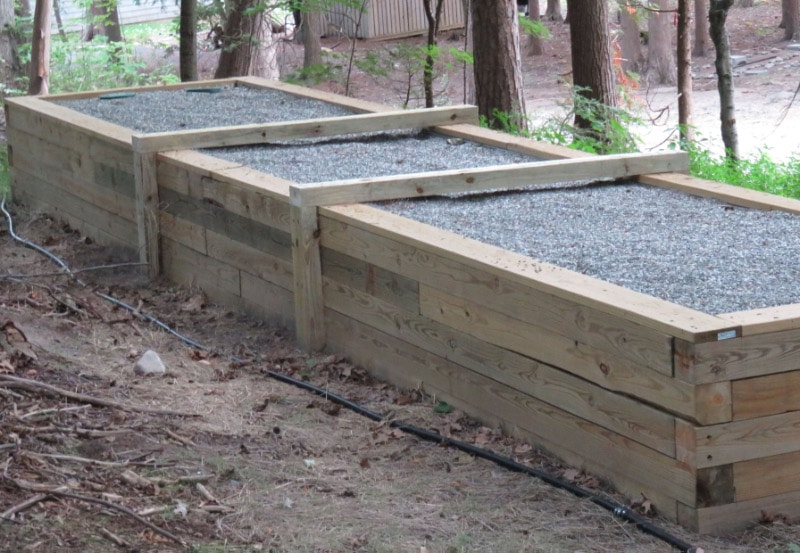Small septic system, also known as innovative or alternative systems, is emerging as a solution for homeowners who are limited in space or have terrains that are difficult. They are designed to optimize space and accommodate diverse soil conditions while ensuring efficient waste treatment and groundwater protection. We’ll look at the advantages of these systems and the innovative technologies they use.
The Necessity of Small Septic Systems
Homeowners with small lots often confront significant difficulties when it comes to installing traditional septic systems, which require a large area of land. If this is the case, a small septic tank might not be adequate to handle the wastewater generated by household use. Complete small septic systems have been specifically designed to meet these needs by providing space-efficient, advanced solutions designed to suit limited spaces and unique environment conditions.

Alternative Septic Systems are Ideal for small Lots
Small design: A Septic systems’ compact dimensions allow for installation in smaller spaces. It’s particularly useful for homeowners with smaller lots because they don’t require the huge land area required by a traditional septic system.
Advanced Waste Treatment Alternative septic uses cutting-edge treatments to ensure the highest quality garbage disposal. For example, aerobic treatment units (ATUs) introduce oxygen into the process of treatment, promoting the development of aerobic bacteria that break down organic matter faster than the anaerobic bacteria that are found in conventional systems.
Environmental Security: These systems are specifically designed to protect the environment by preventing the contamination of groundwater. Modern treatment techniques and carefully developed drain areas ensure the wastewater treated is filtered and purified before being reintroduced into the environment.
Adaptability to Diverse Soil Conditions: Alternative septic systems are adaptable and are able to be modified to work effectively in a variety of conditions of soil, be it sandy, clayey, or rock. They are suited to diverse geographical areas and environmental conditions because they are adaptable to different conditions.
Alternative Types of Septic Systems for Small Lots
Aerobic Treatment Units: ATUs use oxygen to enhance the breakdown of organic materials in water. Compact size and superior treatment capabilities make these units ideal for small-sized areas. They’re particularly efficient in areas that have stringent environmental regulations, as they provide better effluent quality as compared to traditional systems.
Sand Filters: Sand filters use layers of sand in order to filter and treat wastewater naturally. They’re a great option for areas that have soil that is not suitable for drain fields. The sand layers act as a natural filtration system to remove pathogens and pollutants from the water before it is released.
Pressure-Dosed Drain Fields: In pressure-dosed systems, wastewater is intermittently pumped into the drainage field, which ensures uniform distribution and absorption. This method is very effective for small areas as it helps reduce soil saturation. Also, it improves the efficiency of the entire treatment process.
Constructed Wetlands Constructed wetlands are modeled after natural wetland processes to remove water. They’re composed of vegetation and soil layers that filter and purify the effluent. These systems are designed to be ecologically friendly, and they can also be tailored to smaller lots. This can provide both practical and aesthetic advantages.
Mound Systems are elevated drainfields that are built over the soil’s surface. These systems are especially useful in regions in which the water table in the ground is high or the bedrock is low. Mound systems provide effective treatment using the natural filtration capacity of sand and soil layers inside the mound. Visit Septic systems for small lots
Implementing Alternative Septic Systems
It is essential to speak with a professional before deciding on an alternative system for a smaller property. A professional can assess the needs of the property and recommend the most suitable solution. To determine which system is best, it’s important to think about factors like the type of soil, the size of the lot the local regulations, and environmental conditions.
Also, you can read our conclusion.
Small-lot septic systems can provide innovative and sustainable solutions for wastewater management. These systems offer homeowners green and efficient options to manage household waste, by incorporating modern technology and adapting them to the different soil conditions. Whether dealing with space constraints or challenging terrain the alternative systems will ensure that wastewater is properly treated and protects the environment and the homeowner’s property. Innovative small septic system that blends functionality, efficiency and sustainability is set to revolutionize wastewater management.